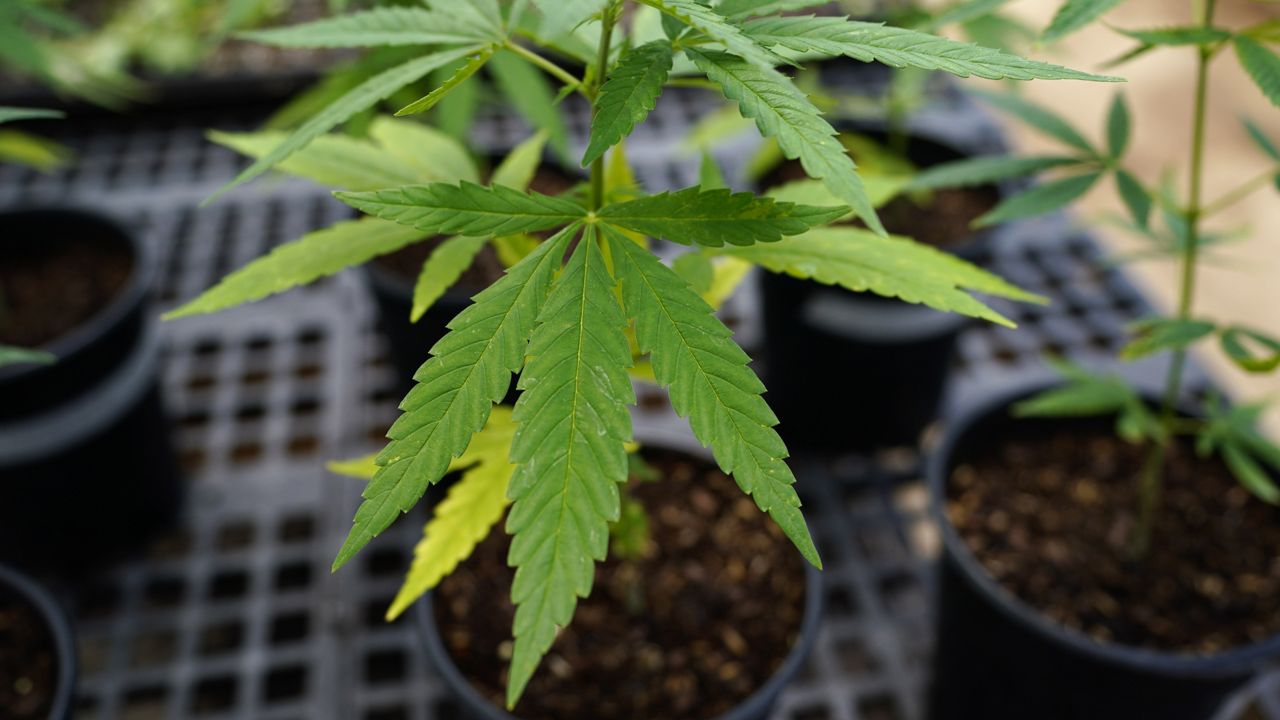Chemical compounds found in the hemp plant may provide protections against the SARS-CoV-2 virus, according to a study published in the Journal of Natural Products on Monday.
The laboratory study, conducted at Oregon State University, searched for potential botanical ligands – or a molecule that binds to other atoms – that could help block COVID-19 cells from infecting the human body.
Using a specialized chemical screening technique called mass-spectrometry, researchers found two possible compounds that can successfully prevent the SARS-CoV-2 virus from entering and infecting human epithelial cells: cannabigerolic acid, or CBGA, and cannabidiolic acid, CBDA.
Both acids are found in hemp, scientifically known as cannabis sativa, which is not a controlled substance in the U.S. The two compounds were found to be “equally effective” at preventing infection from the alpha and beta variants of COVID-19.
“These compounds can be taken orally and have a long history of safe use in humans,” Richard van Breemen, the study’s lead author, wrote in part. “They have the potential to prevent as well as treat infection by SARS-CoV-2. CBDA and CBGA are produced by the hemp plant as precursors to CBD and CBG, which are familiar to many consumers. However, they are different from the acids and are not contained in hemp products.”
The compounds work by attaching themselves to SARS-CoV-2 spike proteins, a key part of the virus’ transmission process, as the proteins allow it to attach to host cells. By disrupting the replication process, the cannabinoids can effectively “thwart infection or disease progression,” researchers found.
There is no viral protection from smoking cannabis, van Breeman noted.
"The benefit for preventing viral infection of cells must come from cannabinoid acids, which are heat sensitive and must not be smoked, or it would convert them to CBD and so forth," he said. "So that wouldn't work for the antiviral effect."
More testing is also needed to determine if the cannabinoids are effective in preventing infection from the delta and omicron variants of COVID-19, and it’s possible that future variants might also be cannabinoid-resistant. Van Breeman also hopes, with more funding, to study a separate compound found in licorice that might also effectively block COVID’s spike protein from bonding to human cells.
Nonetheless, researchers posit that the “combination of vaccination and CBDA/CBGA treatment should make for a much more challenging environment for SARS-CoV-2.”
The Oregon State study is far from the only research indicating that cannabis-based compounds might be effective in preventing COVID-19.
A separate study from the National Institutes of Health, published in March 2021, found that cannabidiol “inhibits SARS-CoV-2 infection,” while CBD metabolites “potently block SARS-CoV-2 replication in lung epithelial cells.”
“A cohort of human patients previously taking CBD had significantly lower SARS-CoV-2 infection incidence of up to an order of magnitude relative to matched pairs or the general population,” researchers wrote in part. “This study highlights CBD, and its active metabolite, 7-OH-CBD, as potential preventative agents and therapeutic treatments for SARS-CoV-2 at early stages of infection.”



